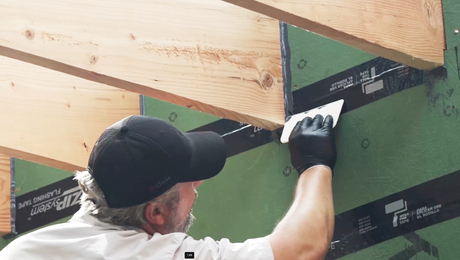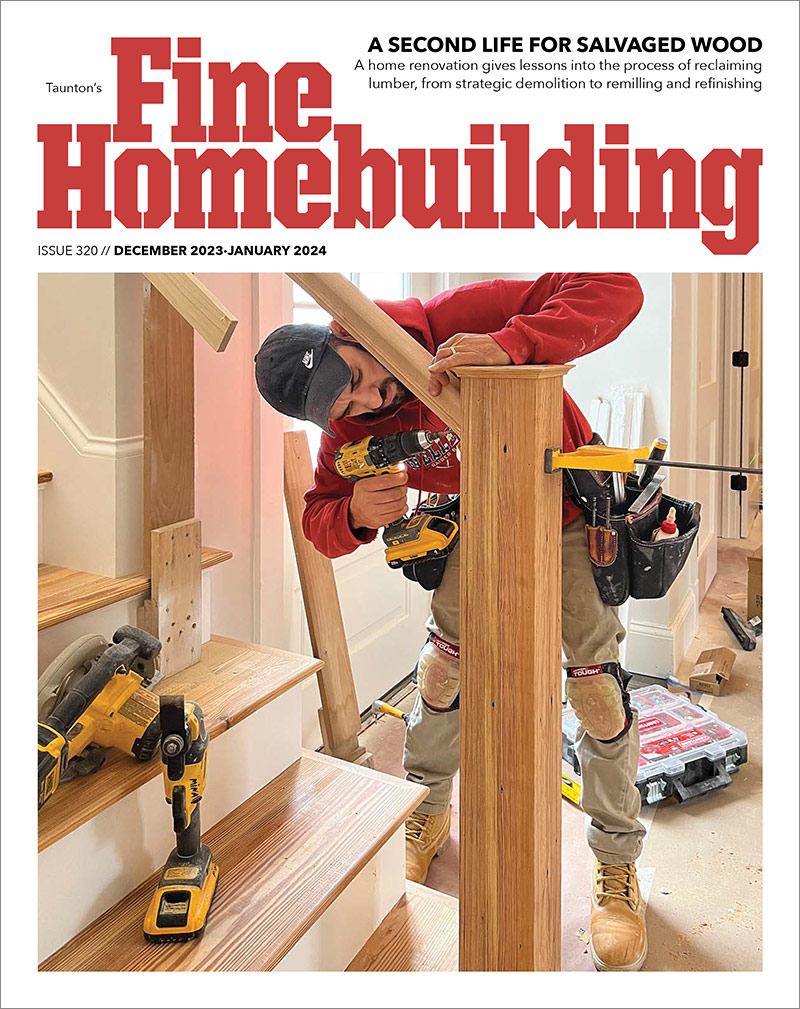*
~Clifford Renovations~ Cold Spring Harbor New York~
In my estimates for renovations I usually figure all the time and materials it will take me to do a job. But profit?And time? Hmmmm. I know there are all kinds of formulers to figure in the profit, but within my estimates a lot of the time I will figure how much the bottem line I think I should made from a job depending on the complexity ,wheather it lay with in the skill level, or the grunt end of a particular job, or whatever it is. I try and figure after 25 years of experiance what I want my bottem line to be. What I think its worth. How do you other contractors figure in your “profit”…”time”..or do you figure it like I do……the bottem line? Whats fair! I think after all these years what I figure is that even though a job may take me only two hours it may be worth far more than TWO HOURS labor. Its all the years of experiance that has allowed me to figure it out with creative and intuitive knowledge. It seems to me that in this aspect of work…craftsmanship ….in renovations….that its sometimes difficult to use formulers all the time…what do you all think?
Thanks,
Andy
Discussion Forum
Discussion Forum
Up Next
Video Shorts
Featured Story

Michael Hindle explores the efficacy of deep energy retrofits and discusses essential considerations for effective climate mitigation.
Highlights
"I have learned so much thanks to the searchable articles on the FHB website. I can confidently say that I expect to be a life-long subscriber." - M.K.

















Replies
*
Andy,
I hate to say it, but have you done a search on profit and overhead etc? There is a lot of information here and at JLC. Particularly relationships of Profit and overhead. Reading those may help you ask the question you really want answered as to the one you think you want answered.
BobL
*I don't believe it! Another of us in the form of a Bob L. has crossed over the line to become a philosopher. Right on!
*andy.I do the same as you, then I add in a percentage for o&p. 12% for big ticket items, more for smaller jobs. You gotta pay the business somehow. When I was working the fishing boat, all hands got a % share of the profit INCLUDING the boat. Same thing applies to building/remodeling.
*Finding Minimum Profit is easy; it is just two simple calculations. First, how much could you earn if you worked at a "real job"? In dollar terms you need to earn at least that much or you are extremely foolish. Second, add up how much money you have invested in your business. Be sure you get everything right down to the last hammer. Then multiply that by how much you could earn in a reasonably safe investment. For example if you have $100,000 invested in the business; at today's interest rates you could get 6% return in a reasonably safe investment(stock market is excluded because there is nothing safe about it). So, your minimum profit on labor is what you could earn elsewhere and your minimum profit on investment is what you could earn on that amount of money invested elsewhere. Note that neither of these rewards you for the risk taking that goes along with owning a business.These two calculations give you the minimum percentage and amount of profit you must earn just to break even. To this you must add an amount, your choice, to reward you for taking the risk of owning and operating a business. If you can't earn at least the total amount you Must disolve your business and do something else or you are financially foolish.To this Minimum Profit you should add as much as the market will bear. There is no real method for finding out what that amount of profit is except by experimentation. You make bids, you get some, you lose some. After awhile you get a feel for what will fly and what won't. You find out what your niche in the world is and you fill that niche.There is lots of stuff out there on setting profit margins. There is lots here that you can find by doing a search. Companies big and small spend lots of money on figuring out what their markup should be. But it all boils down to two things: Finding your Minimum Profit and developing a gut feel for what above that you can reasonably expect to get.
*Fred's right.....gut feeling.What's frustrating for anyone starting out, you can't put that experence into a table, a chart to go by. You know by doing.It takes time. And until you can say you've got that feeling, fake it, but don't loose it.1. Call the profit a reward.As Fred said, you must consider what you should reward yourself for taking on the risk. Risk requires a reward other than a pat on your own back.Luck
*The magic number for profit and overhead seems to be 20% by most accounts. I'm with most of you guys in that each businessman must determine his own percentage. Andy, you are certainly on the right track by looking at each job individually. Unless you are doing jobs that are identical it is hard to use a blanket percentage and be covered. As far as remodeling goes, I think certain predictable sub categories of work, ie. basement remodels, resides, reroofs, etc. can have there own percentage rates for markup. But when it comes to complex, one off additions, it comes back to the gut.I just did one where I pretty much nailed everthing on a 200k addition and achieved my anticipated profit and overhead percentages. I would not do that job again without doubling my profit and overhead. Unfortunately, I would not get the job at that price. I do believe that a high bid does more for the industry as a whole than a low bid.But as to profit and overhead, few get rich in this business. The ones that do are the ones the low price guys grumble about. I'm either making a damn good living being a general contractor, or I'll go work for the competition and settle for a good living.
*Andy, I am a remodeling and new home contractor from Wisconsin. 10 years ago I mangaged a remodle company, and my boss always bid jobs by the simple process of figuring how long it should take, figure out how much the materials should be, and then hope for the best. Then he, I and our 2 salesmen when to a seminar by Hometech. We were informed that if did not mark up our materials and subcontractors by a minimum of 50% we would be out of business in 3 years. Every contractor in the room said "your nuts, we'll never get that in our area." We went home and decided that we'll set up a 30/30 program. $30/man-hour and 30% markup on materials and subs. That spring we sold about 75% fewer jobs than normal.Depressing!. But soon all our competitors were booked till august with low budget jobs and we consistently sold higher profit work, even if the sales came slower.Now I am on my own(5yrs.) I mark up everything minimum 25%. (except for new h0me subcontract work.). Never be ashamed to make money. Jim Wright Lakeshore Contracting Service, Manitowoc,WI
*I am in agreement with what everyone is saying about profits. Healthy margins are essential in this business. Another way to look at this is in simple economic terms. The price someone is willing pay is a function of supply and demand. In order to justify higher prices than the competition, you must either increase the demand or reduce the supply for your services. I generally focus on the demand side. When you blend in with every other contractor out there, you cannot expect elevated demand and higher prices for your services. However, if you deliver consistently higher levels of service, design capabilities, process refinement, and quality, the demand for your services is going to reflect that. Once you become known as being expensive(and everything else above), the people who can afford you and demand the excellence you provide will call and gladly pay.
*Tom, I have to agree with you. It seems that its what you sell yourself as and living up to that. As a general contractor that actually works on the job as I think so many of you do what I try and sell myself as is what I am. someone that hands on does 90% of the work. 10 % is subbed out such as my electrical and most plumbing unless the jobs are very big I will also sub out the drywall and insulation as well.etc etc.. To offer yourself as a hands on contractor that is consciensous and extremely well versed in their craft is invaluable. Where the customer can rely on you for so many aspects of the work and not constantly let their fingers do the walking..so to speak...Especially in a biz that can have such a bad reputation with rip offs and part time contractor/builder wanna-be's. To let the customer know what they are paying for through past history and proof within the first job or two is what sells you and gets the "reward". I've heard too from marketing stratigists at building association meetings all kinds of formulars that you SHOULD be asking for other wise you should be working for someone else. To me......you should be getting what makes you happy weighing out many things besides your profit....Such as working for yourself. HAving those freedoms....To me working for myself is still worth more even than if I made the same thing working for someone else. The ability to be creative and my own person. The ability to possibly make more. Etc Etc . To some like many that have worked FOR me, they would RATHER no headaches and just get up go to work and go home and collect a paycheck. Its about bottem line.Weighing all the factors out and being happy enough with what you make..Just like everything else in life. If you cant make it better then change it. In turn, withthat attitude in everything especially my craft I think I get my rewards.
*Often when dealing with potential customers I am told that my competition is at price X while I am at price Y or that I am at so many percent higher than they are. This doesn't bother me the least bit. If I wasn't hearing it regularly I would think I was bidding too low. I simply look at the potential customer very sincerely and say " They ( my competition ) know better than I do the value of thier work and the quality they provide. I know better than they do the quality of my work and the value I provide. You as a homeowner know better than either of us how much value and quality you and your home are worth and deserve. ......... so, how much are you worth and what does your home deserve? " 9 times out of 10 I get the job after asking that. The ones I miss are people that I probably don't want to work for anyway. So, how about you as a contractor ? You know better than anyone else how much quality and value you provide and what that is worth. Your potential clients know better than you how much quality and value they think they are worth and deserve. We should always be searching for a match there and be looking for clients that deserve us and can afford us. Your potential clients wouldn't stand for having a high paycheck one month and a low one the next from thier employer. We shouldn't either. A person that expects us to work for little or no profit and a substandard living for us and our crew is someone we don't want to have as customers. It is easy for many contractors to rationalize taking low paying jobs because it " pays the bills till more profitable jobs come along " . Think so ? I challenge anyone who thinks this to sit down with a good accountant and thoroughly analyze the cost and profit of a job that " pays the bills " . Most times it really doesn't. There may be a lot of money changing hands quickly in a large job like this, but once all the true costs are included in the accounting you probably were better off going fishing instead. Kinda reminds me of the guy that won the lottery and when asked what he was going to do with his winnings replied " I am going to be the low bidder on construction projects till I run out of money ". Well that is my opinion at least. And opinions are worth exactly what you pay for them. I just think if I am going to earn a substandard wage, I should go work at 7-11 to do it. At least then I know what time I get off for supper and I wouldn't ever have to sweat a loan payment to do it.
*Jon, well said and I suppose a lot of problems arise when the jobs are either small or uninvolved and like hanging a set of shelves in a basement laundry room with a host of other similar jobs.. (which by the way CAN add up to good money)the customer feels as though they shouldnt have to pay for a craftsman. When I see this type of job coming (and after years in the biz I can see it coming) what I do is try and steer them towards a handyman that I have repore with.....and in turn he steers more involved customers my way. Theres always a way to keep a potential customer happy with you.
*
~Clifford Renovations~ Cold Spring Harbor New York~
In my estimates for renovations I usually figure all the time and materials it will take me to do a job. But profit?And time? Hmmmm. I know there are all kinds of formulers to figure in the profit, but within my estimates a lot of the time I will figure how much the bottem line I think I should made from a job depending on the complexity ,wheather it lay with in the skill level, or the grunt end of a particular job, or whatever it is. I try and figure after 25 years of experiance what I want my bottem line to be. What I think its worth. How do you other contractors figure in your "profit"..."time"..or do you figure it like I do......the bottem line? Whats fair! I think after all these years what I figure is that even though a job may take me only two hours it may be worth far more than TWO HOURS labor. Its all the years of experiance that has allowed me to figure it out with creative and intuitive knowledge. It seems to me that in this aspect of work...craftsmanship ....in renovations....that its sometimes difficult to use formulers all the time...what do you all think?
Thanks,
Andy